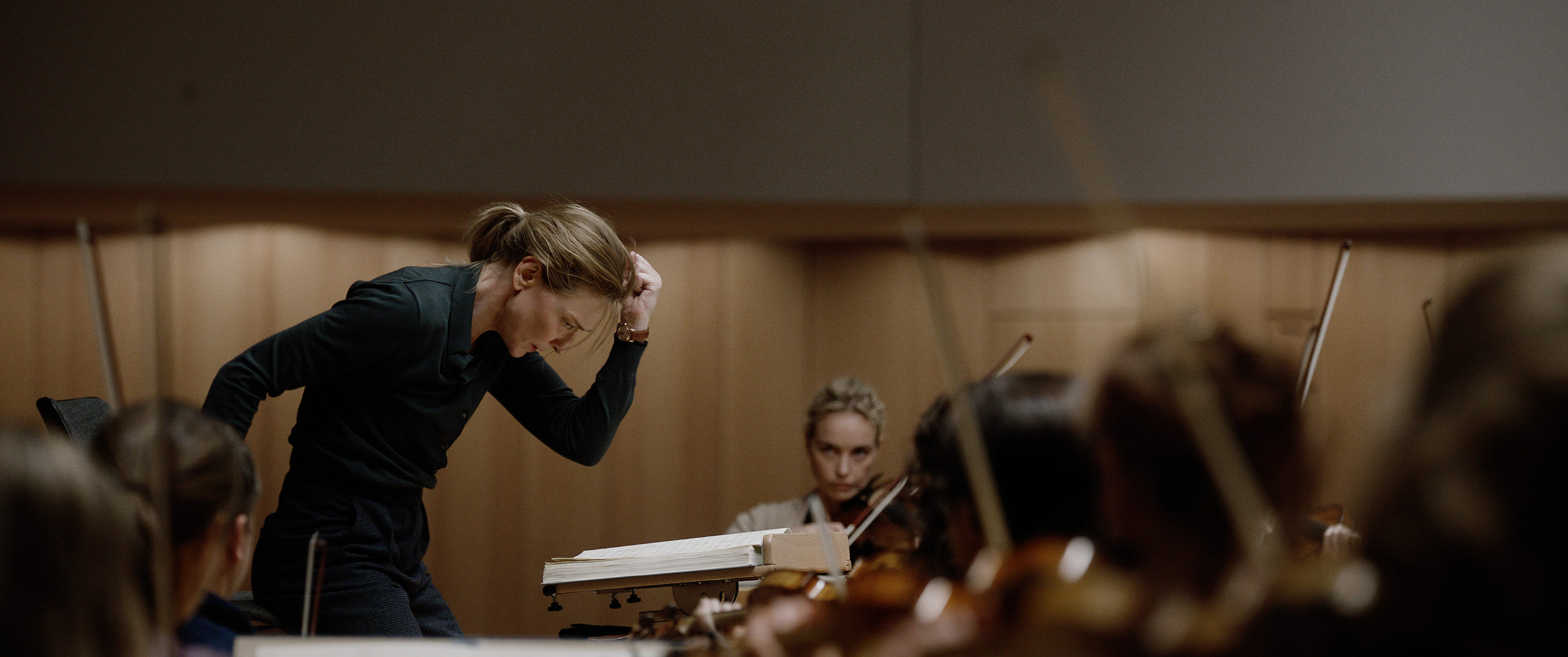The film’s opening scene looks and feels like actress Cate Blanchett sitting down for an interview about her work. The two-time Oscar-winning actress has been doing lots of interviews for this film, which could land her a third Academy Award. Writer/director Todd Field blends the reality of Blanchett as a highly accomplished actor and this fictional international composer named Lydia Tár. As the complex film unfolds, it’s clear this isn’t a crowd-pleaser but a head-scratcher. “TÁR” on the outskirts is a psychological horror film about the rise and fall of narcissism and self-destruction, i.e., Kanye West. Some are already comparing “TÁR” to “Black Swan” for its tortured brilliant themes. The latter exposed the brutal politics of ballet, and here the curtain is drawn on Western classical music.
EGOT, professor at Juilliard, and world-renown maestro Lydia Tár (Blanchett) is one of the most respected composers of the modern age. Her methods and brilliance, however, come at the expense of others; her wife Sharon (Hoss), assistant Francesca (Merlant), or any numerous students who might disagree with her vision or way of thinking. Her abuse of power and disrespect of those around her mount a landslide threatening her work and the facade she carefully cultivated. At her core, self-made Lydia Tár is continuously proving to herself that she isn’t still “Linda” from some forgotten neighborhood.
Field... plays around with emotions instead of embracing them head-on. He rarely delivers a scene that’s anything but brutally honest.
Field and Blanchett (an executive producer) conduct a narrative that’s often too high-brow for the average audience. So much shop talk in the first act makes it challenging for some to understand. Field, whose work includes the Oscar-nominated masterpiece “In the Bedroom” and “Little Children,” plays around with emotions instead of embracing them head-on. He rarely delivers a scene that’s anything but brutally honest. Much like the personality of Lydia Tár, the film itself isn’t friendly, deliberately cold even, yet fascinating at the same time. At one point, Tár says the music we are listening to and enjoying might not always be polite, a trait she also shares. The type of work you want to dissect in a film class. “Black Swan” and “Whiplash” might be marketing comparisons, as those films were far more narratively accessible to viewers. Tár is keener to “There Will Be Blood” and Daniel Plainview’s manipulation techniques.
Your experience with TÁR will depend entirely on your expectations and willingness to unpack much of what Field is offering. The pallet and texture of the film, from editing to the cinematography, especially the wardrobe and art design, are colorless without warmth, reflecting Tár’s ethos again. Blanchett, who is in every scene, commands the screen, violently in some cases, from start to finish. Speaking of which, not only does the actress speak fluent German and relearns the piano for the film, but she is, in fact, actually conducting the Dresden Orchestra. Field doesn’t give us all the answers we want. Instead challenges the viewer with nuances both in the script and on the screen.
Final Thought
As Lydia Tár subtly conducts her destruction, Blanchett moves in the opposite direction, towards brilliance.

